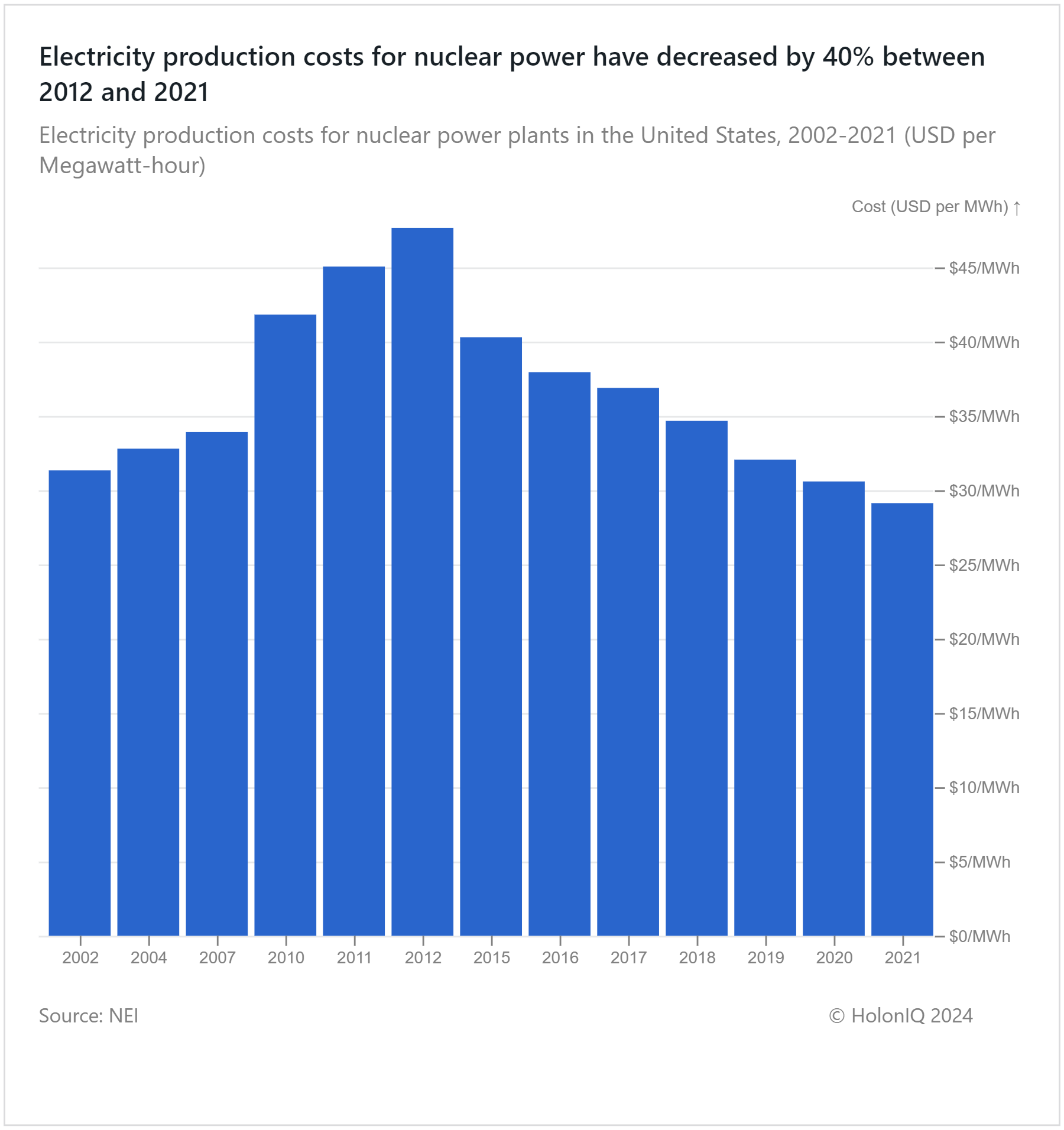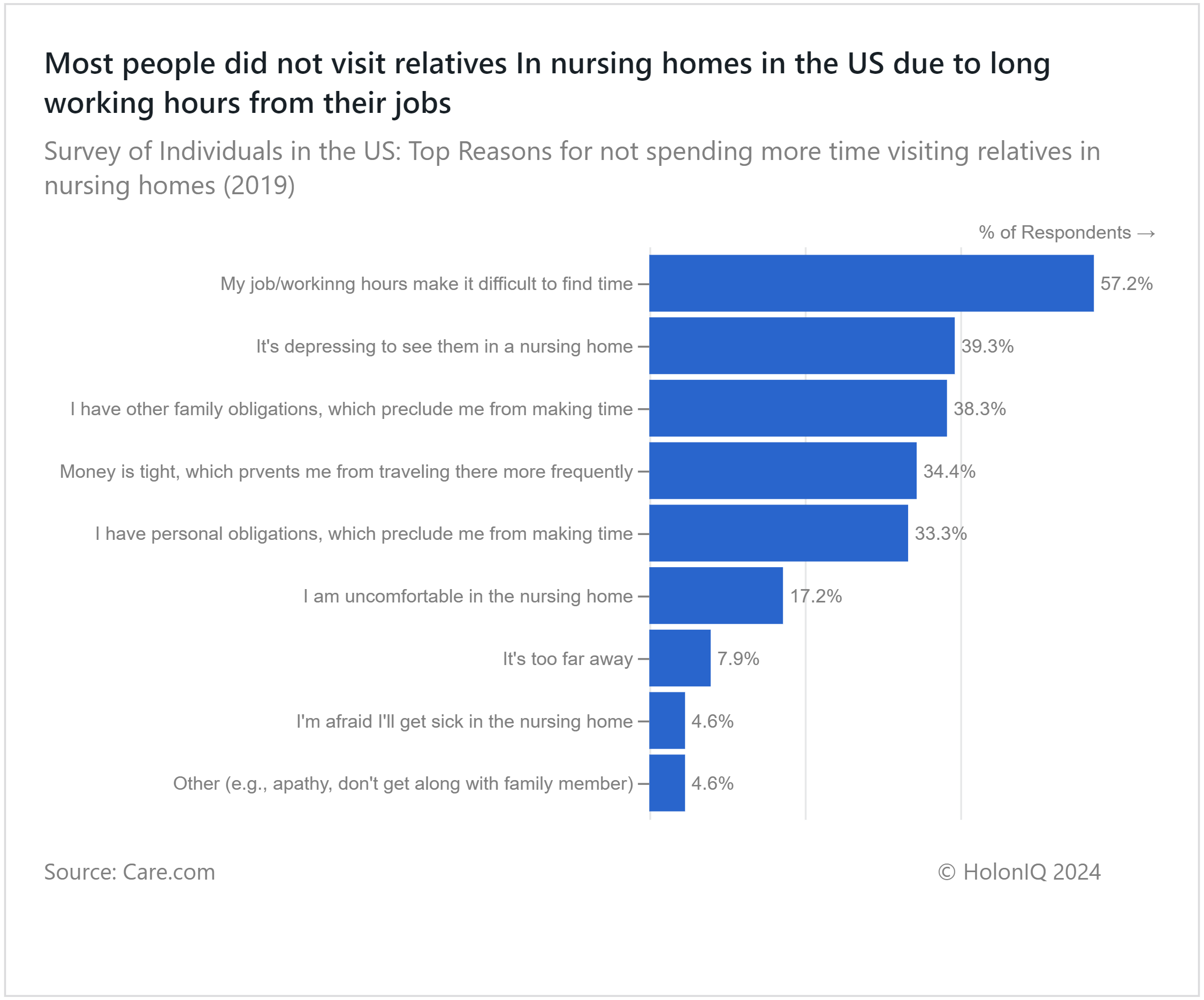👨💻 $450B Skills Shortage. 40% Nuclear Cost Drop. Nursing Homes.
Chart of the Day #42 looks at Tech Talent Shortages, Nuclear Energy, and Nursing Home Visits.
Buna ziua 🏰
EU member states were split on their support for energy policy ahead of a meeting on Monday. A group led by France advocated for nuclear energy technology, while Austria and Germany emphasized prioritizing renewable energy sources instead. Japan's Fukushima water release is straining China-Japan ties, despite safety reassurance from the International Atomic Energy Agency.
Today's Topics
- 👨💻 Tech Talent Shortage. $450B output loss from tech talent shortages
- ⚛️ Nuclear Energy. 40% cost drop in electricity from nuclear energy
- 👴 Nursing Home Visits. Work hours bar 57% from visiting family in nursing homes
For unlimited access to over one million charts, request a demo.
👨💻 $450B Output Loss From Tech Talent Shortages

The global tech talent shortage is expected to impact $450B worth of unrealized output by 2030. This impact is expected to double by 2025, reaching $213.5B from $112.2B in 2022 and further doubling again by 2030. The aftermath of the pandemic introduced new technologies, necessitating upskilling and reskilling efforts. However, a significant challenge lies in the skill and job mismatch due to restrictive immigration policies and education curricula struggling to keep pace with evolving technologies. Moreover, the impact of the mass resignation during the pandemic remains, as there is still a sheer shortage of tech talent.
Another issue is the global formation of "Tech Hubs," which concentrate talent in specific geographical areas, creating geographical disparities, leading to higher wages and increased competition, and pushing the battle for tech talent beyond national borders. Addressing these shortages requires substantial investment in STEM education, reviewing immigration policies, upskilling and reskilling efforts, and promoting geographical diversity.
⚛️ 40% Electricity Production Cost Drop From Nuclear Energy

Nuclear power plants, though expensive to build, have become relatively inexpensive to run. Since 2012, electricity production costs using nuclear energy have decreased by 40%. This reduction is attributed to investments in plant upgrades and optimizations, enhancing efficiency and minimizing downtime, ultimately leading to lower operating costs per unit of electricity produced. Additionally, nuclear energy's extended lifespan allows for upfront costs to be recovered over a longer period, rendering it cost-competitive with coal.
According to LSE, coal and gas emit approximately 1,050g and 450g of CO2 per kWh, while nuclear energy only emits around 15–50g of CO2 per kWh. Hence, despite concerns about safety incidents, nuclear energy proves ideal for providing the baseload to the power grid due to its cost-effectiveness and 15-20x less carbon emissions. This can be complemented by the integration of renewable energy sources to create a fully low-carbon energy mix.
👴 Work Hours Bar 57% From Visiting Family in Nursing Homes

57.2% of Americans stated long working hours and job-related commitments as the main factors preventing them from visiting their relatives who are in nursing homes. Negative emotions also played a significant role, as 39.3% found the situation depressing, and 17.2% felt uncomfortable in the nursing home environment. Competing obligations, both family (38.3%) and personal (33.3%), were identified as limiting factors, indicating the challenges individuals face in balancing their responsibilities. Moreover, financial constraints and commute distances were additional barriers to frequent visits.
It's important to note that these findings are specific to the US, and regional variations might exist. Asian countries are known to place a relatively stronger emphasis on family-oriented values, and Europe benefits from good social care systems. Therefore, the reasons for limited visits to nursing homes are diverse and likely to be region-dependent.
Like getting this newsletter? For unlimited access to over one million charts, request a demo.
Thank you for reading. Have a great week ahead!
Have some feedback or want to sponsor this newsletter? Let us know at hello@holoniq.com
